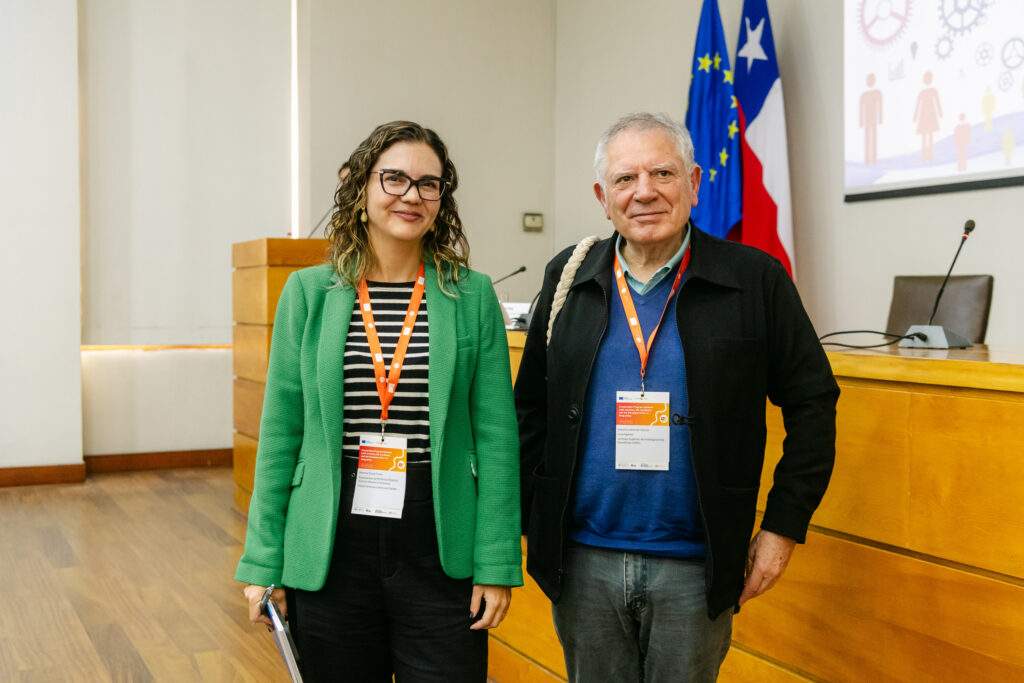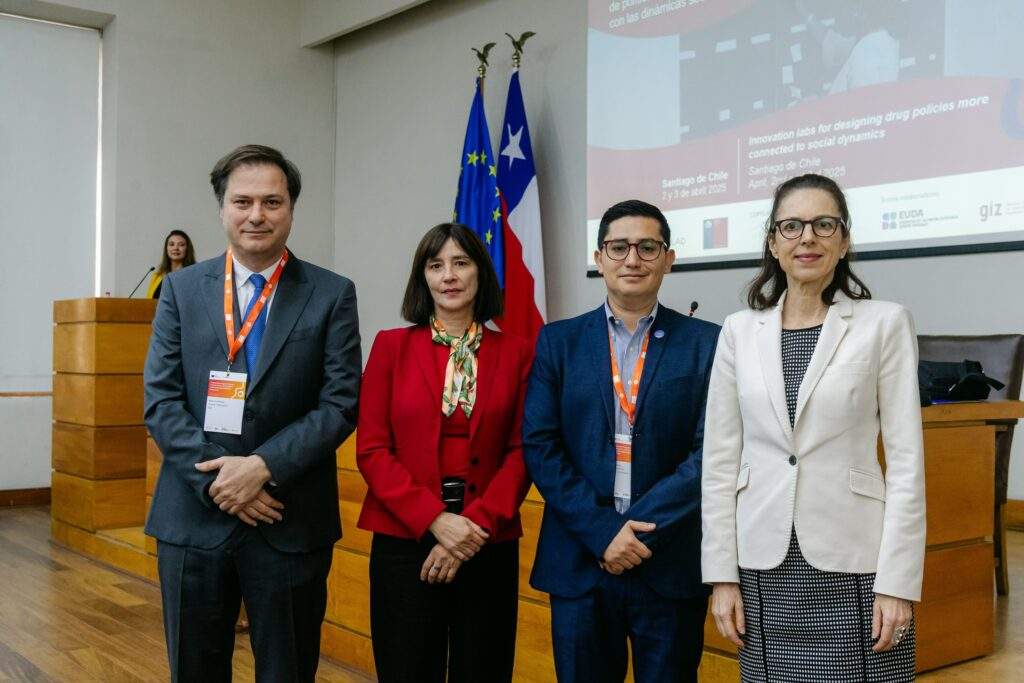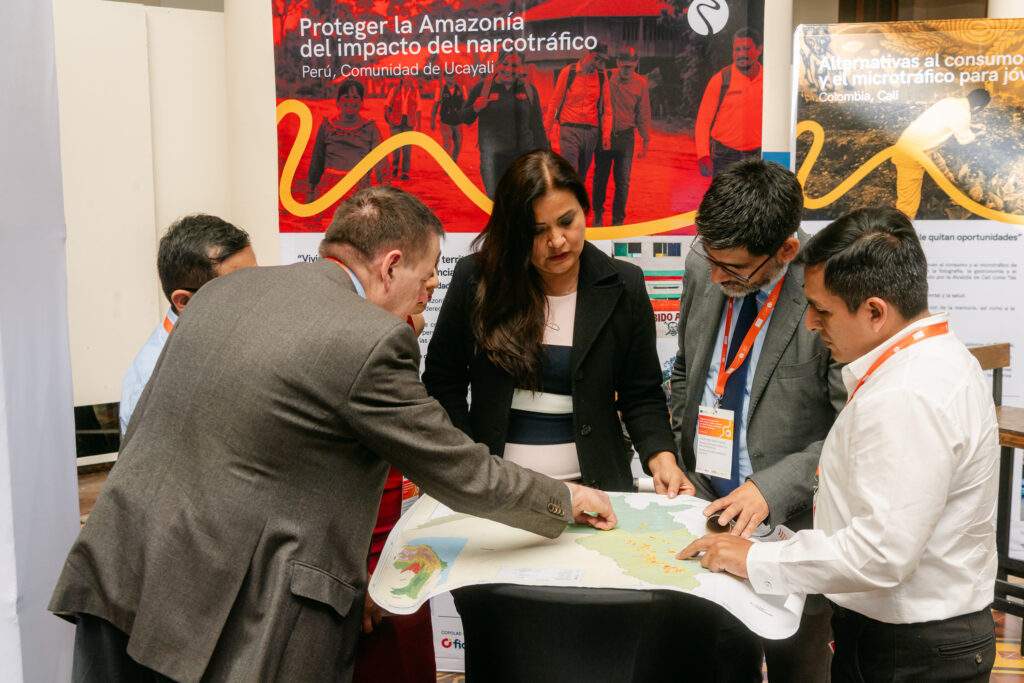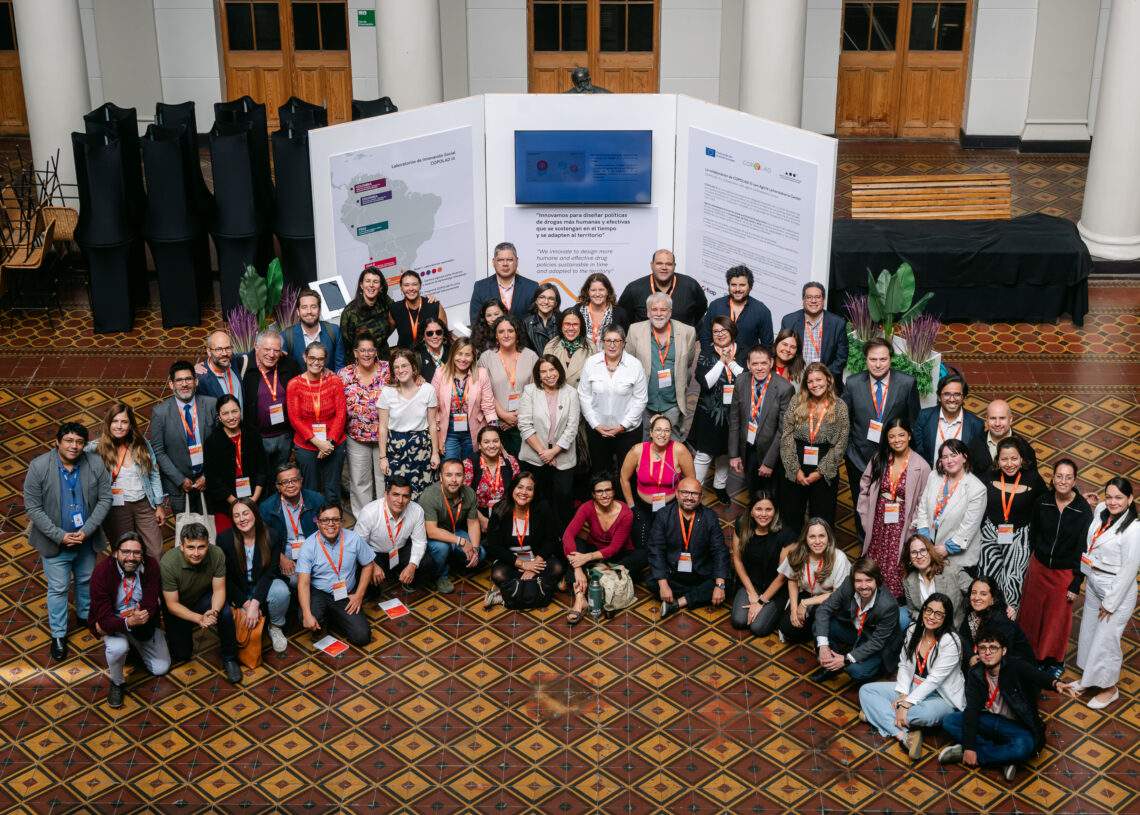More than one hundred specialists from Latin America, the Caribbean and Europe met on April 2 and 3 at the University of Chile for an international event on social innovation in drug policy. Organized in the context of COPOLAD III, cooperation program between European Union, Latin America and the Caribbean, the event presented the results and lessons learned from the 5 laboratories promoted by COPOLAD III in the region of Maule (Chile), Cali and Santander de Quilichao (Colombia), the indigenous community of Flor de Ucayali (Peruvian Amazon) and the outskirts of Montevideo (Uruguay), in areas particularly sensitive to increased drug use and/or the impact of drug trafficking.
In the meeting ‘Innovation laboratories for the design of drug policies more connected to social dynamics’ took part representatives of national drug agencies, government institutions and local NGOs, as well as experts in social innovation from the United Nations Development Program (UNDP) in Latin America and the Caribbean, and the Consejo Superior de Investigaciones Científicas (CSIC, Spain), among other key institutions in this field.

New ways of thinking about drug policies
During the opening of the meeting, the national director of SENDA, Natalia Riffo, emphasized that the five experiences promoted by COPOLAD III have made it possible “to look again at what citizens really need”, overcoming the logic of isolated interventions and moving towards more comprehensive policies. He affirmed that one of the great challenges facing those working in the public sector is to “design responses that dialogue with each other and respond concretely to those who require the most support.”
Borja Díaz Rivillas, director of COPOLAD-FIAP, said that these spaces open up new ways of thinking about drug policies, bringing them closer to social dynamics. He emphasized that the most important thing is that the affected communities “not only participate in identifying the problems, but also in the search for solutions”.
The European Union Ambassador to Chile, Claudia Gintersdorfer, said that COPOLAD III represents a shared vision between Europe and Latin America, “centered on human development, rights, innovation and inclusion”. This approach, she added, “distinguishes us and also unites us in this common task”.
From the Laboratorio de Gobierno, Orlando Rojas stated that public innovation is not only a technical tool, but “a way of understanding the role of the State”. In his words, this meeting reflects a transformation that is already underway in Chile, where the aim is to leave behind vertical models to “open real spaces for listening, collaboration and experimentation”.

Five innovation laboratories in progress
Social innovation laboratories are born to respond to complex challenges associated with drugs such as inequalities, exclusion, stigma and discrimination, violence, or the consequences for public health and the environment…, which require innovative tools and approaches from public administrations and civil society.
The objective of the network of laboratories promoted by COPOLAD III, in collaboration with Agirre Lehendakaria Center, is to promote public policies on drugs more connected with the social dynamics and needs of the communities, and therefore, with a greater capacity to generate impact on people and to be sustainable over time.
One of the 5 projects discussed during the Santiago meeting addresses drug use and mental health improvement among children and adolescents under the guardianship and protection of the Chilean state in the Maule region. It is being implemented by Chile’s National Service for the Prevention and Rehabilitation of Drug and Alcohol Consumption (SENDA).
In Montevideo (Uruguay) the work is being done with women at risk of vulnerability with children and adolescents in their care; in Cali and Santander de Quilichao (Colombia) in the search for alternatives for inclusion in the fight against drug use and micro-trafficking for young people, while in Peru an alert system is being implemented in the Ucayali region as a pilot experience to enable members of a native community and institutions to act quickly and in a coordinated manner when they detect threats to their lives and natural resources from drug trafficking activities.

New guide and exhibition
During the event, Júlia Martínez and Susana Mañueco, from Agirre Lehendakaria Center, presented their K-tool to evaluate these initiatives, as well as the new Guide to Social Innovation in Drug Policies, which covers both the methodologies used and practical examples of their implementation in different territories. The need to rethink the indicators so that the evaluation of these projects does not leave out many of the results and processes that are carried out was one of the main topics of discussion, as well as the scalability and sustainability of the laboratories over time and in the territories.
At the same time, an exhibition in the Patio Domeyko of the University of Chile made visible through photographs and audiovisuals the development and impact of these projects on communities and people.






